Author Martin Carthy
The Eighteenth of June or Poor Boney
Anonymous
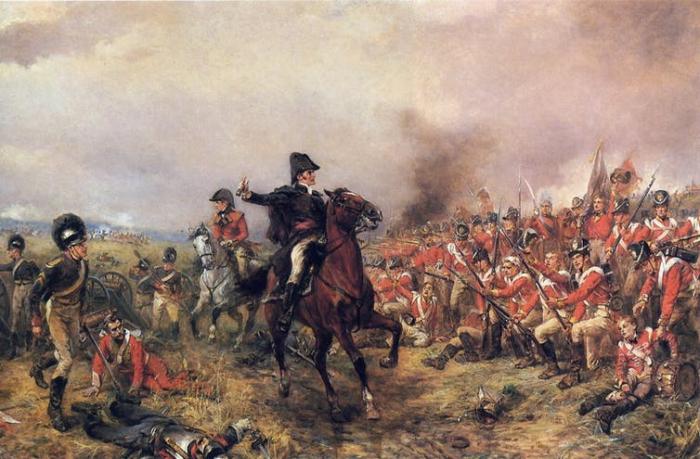
La canzone si riferisce alla sconfitta di Napoleone a Waterloo il 18 giugno 1815. E' stata interpretata da Norma Waterson con il titolo Poor Boney e da Martin Carthy con il titolo The Eighteenth of June
Testo cantato da Norma Waterson ripreso da Mainly Norfolk: English Folk and Other Good Music. Vedi anche FolkWorld #57: Songs That Made History
Testo cantato da Norma Waterson ripreso da Mainly Norfolk: English Folk and Other Good Music. Vedi anche FolkWorld #57: Songs That Made History
All you people who live at home easy
(Continues)
(Continues)
2020/12/18 - 18:20
Song Itineraries:
Napoleon's Wars
The Green Fields of England
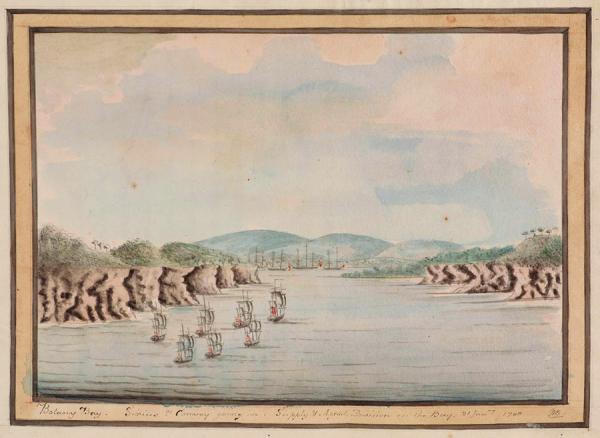
1977
The Transports
This unique project relates the true story of Henry Cabell and Susannah Holmes, convicts transported to Australia on the “First Fleet” in 1787 and the trials and tribulations which culminated in that historic voyage. The tale is presented as a cycle of new compositions in the idiom of traditional English folk song, linked by narrative passages in the style and to the melodies of broadsheet ballads of the time. The orchestral passages and arrangements for the accompanied songs have been conveived in such a way as to underline the overall feeling of “period” and the instruments used are those likely to have been heard in the church bands or “quires” of East Anglian villages in those days. The singers have been chosen from the front rank of the English folk song revival, and the melodies composed to suit their individual style. A detailed account of the historical background... (Continues)
The Transports
This unique project relates the true story of Henry Cabell and Susannah Holmes, convicts transported to Australia on the “First Fleet” in 1787 and the trials and tribulations which culminated in that historic voyage. The tale is presented as a cycle of new compositions in the idiom of traditional English folk song, linked by narrative passages in the style and to the melodies of broadsheet ballads of the time. The orchestral passages and arrangements for the accompanied songs have been conveived in such a way as to underline the overall feeling of “period” and the instruments used are those likely to have been heard in the church bands or “quires” of East Anglian villages in those days. The singers have been chosen from the front rank of the English folk song revival, and the melodies composed to suit their individual style. A detailed account of the historical background... (Continues)
Farewell to our lovers and our kind relations,
(Continues)
(Continues)
Contributed by Dq82 2018/1/4 - 15:16
The Humane Turnkey

1977
The Transports
This unique project relates the true story of Henry Cabell and Susannah Holmes, convicts transported to Australia on the “First Fleet” in 1787 and the trials and tribulations which culminated in that historic voyage. The tale is presented as a cycle of new compositions in the idiom of traditional English folk song, linked by narrative passages in the style and to the melodies of broadsheet ballads of the time. The orchestral passages and arrangements for the accompanied songs have been conveived in such a way as to underline the overall feeling of “period” and the instruments used are those likely to have been heard in the church bands or “quires” of East Anglian villages in those days. The singers have been chosen from the front rank of the English folk song revival, and the melodies composed to suit their individual style. A detailed account of the historical background... (Continues)
The Transports
This unique project relates the true story of Henry Cabell and Susannah Holmes, convicts transported to Australia on the “First Fleet” in 1787 and the trials and tribulations which culminated in that historic voyage. The tale is presented as a cycle of new compositions in the idiom of traditional English folk song, linked by narrative passages in the style and to the melodies of broadsheet ballads of the time. The orchestral passages and arrangements for the accompanied songs have been conveived in such a way as to underline the overall feeling of “period” and the instruments used are those likely to have been heard in the church bands or “quires” of East Anglian villages in those days. The singers have been chosen from the front rank of the English folk song revival, and the melodies composed to suit their individual style. A detailed account of the historical background... (Continues)
Part 1
(Continues)
(Continues)
Contributed by Dq82 2018/1/4 - 15:08
The Ballad of Henry and Susannah

1977
The Transports
This unique project relates the true story of Henry Cabell and Susannah Holmes, convicts transported to Australia on the “First Fleet” in 1787 and the trials and tribulations which culminated in that historic voyage. The tale is presented as a cycle of new compositions in the idiom of traditional English folk song, linked by narrative passages in the style and to the melodies of broadsheet ballads of the time. The orchestral passages and arrangements for the accompanied songs have been conveived in such a way as to underline the overall feeling of “period” and the instruments used are those likely to have been heard in the church bands or “quires” of East Anglian villages in those days. The singers have been chosen from the front rank of the English folk song revival, and the melodies composed to suit their individual style. A detailed account of the historical background... (Continues)
The Transports
This unique project relates the true story of Henry Cabell and Susannah Holmes, convicts transported to Australia on the “First Fleet” in 1787 and the trials and tribulations which culminated in that historic voyage. The tale is presented as a cycle of new compositions in the idiom of traditional English folk song, linked by narrative passages in the style and to the melodies of broadsheet ballads of the time. The orchestral passages and arrangements for the accompanied songs have been conveived in such a way as to underline the overall feeling of “period” and the instruments used are those likely to have been heard in the church bands or “quires” of East Anglian villages in those days. The singers have been chosen from the front rank of the English folk song revival, and the melodies composed to suit their individual style. A detailed account of the historical background... (Continues)
Part 1
(Continues)
(Continues)
Contributed by Dq82 2018/1/4 - 14:46
Song Itineraries:
The War of Labour: Emigration, Immigration, Exploitation, Slavery
The Nightingale
Anonymous
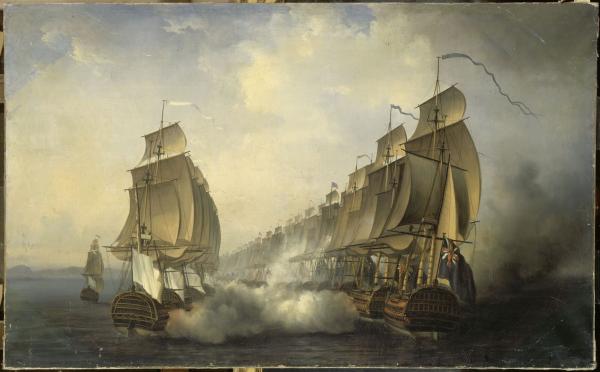
[XVIII° secolo]
Una shanty & love ballad settecentesca, classificata al n. 1093 delle Bodleian Libraries. Qui le date dei riscontri sono tutte ottocentesche ma The Nightingale è stato sicuramente il nome di una nave da guerra inglese impiegata contro i francesi negli ultimi due decenni del 700, durante la guerra d'indipendenza americana o le guerre rivoluzionarie.
Testo trovato su Mainly Norfolk: English Folk and Other Good Music, come interpretato da Eliza Carthy e Norma Waterson, rispettivamente figlia e moglie di Martin Carthy, nel loro album "Gift" del 2010.
In precedenza la canzone è stata incisa anche da Cyril Tawney, da The Clancy Brothers con Louis Killen, Frankie Armstrong e altri.
Una storia di amore impossibile, di sopruso e di guerra.
Un giovane contadino s'innamora, ricambiato, di una ragazza di famiglia benestante. I genitori di lei non solo osteggiano la relazione... (Continues)
Una shanty & love ballad settecentesca, classificata al n. 1093 delle Bodleian Libraries. Qui le date dei riscontri sono tutte ottocentesche ma The Nightingale è stato sicuramente il nome di una nave da guerra inglese impiegata contro i francesi negli ultimi due decenni del 700, durante la guerra d'indipendenza americana o le guerre rivoluzionarie.
Testo trovato su Mainly Norfolk: English Folk and Other Good Music, come interpretato da Eliza Carthy e Norma Waterson, rispettivamente figlia e moglie di Martin Carthy, nel loro album "Gift" del 2010.
In precedenza la canzone è stata incisa anche da Cyril Tawney, da The Clancy Brothers con Louis Killen, Frankie Armstrong e altri.
Una storia di amore impossibile, di sopruso e di guerra.
Un giovane contadino s'innamora, ricambiato, di una ragazza di famiglia benestante. I genitori di lei non solo osteggiano la relazione... (Continues)
Both young and old, I pray lend an ear
(Continues)
(Continues)
Contributed by Bernart Bartleby 2018/1/1 - 16:44
Maid on the Shore
Anonymous
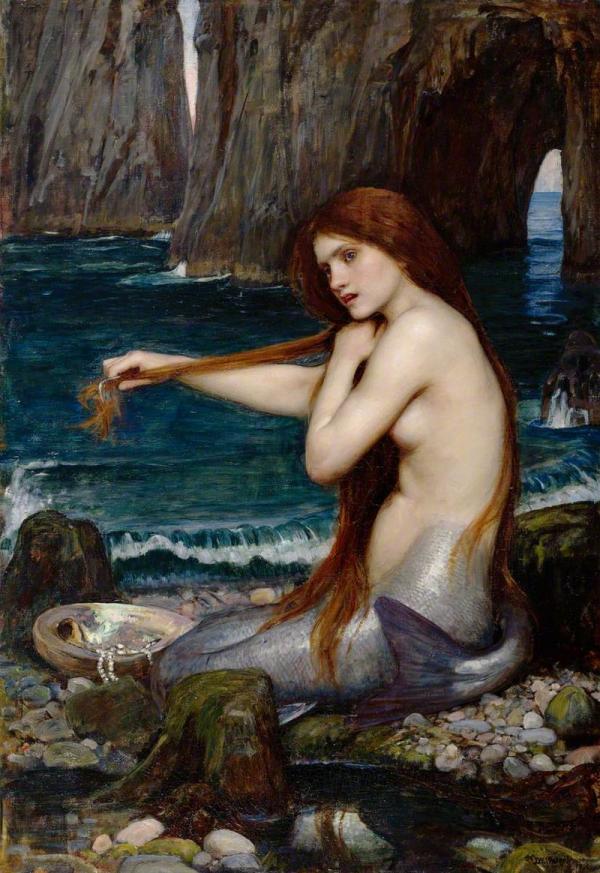
[prima metà dell'800, ma forse ben più antica]
Quello che riporto è il testo della versione della grandissima Frankie Armstrong, dal suo "Lovely on the Water" del 1972, di una delle canzoni tradizionali inglesi più femministe di sempre, al pari di The Crafty Maid's Policy, Lady Maisry, Wreccan wifes ged [The Wife's Lament; The Wife's Complaint] e altre già presenti sul sito.
"Maid on the Shore", o "The Mermaid", è stata incisa anche da A.L. Lloyd, Peggy Seeger, Martin Carthy, Stan Rogers, Cyril Tawney e molti altri artisti
Testo trovato su Mainly Norfolk: English Folk and Other Good Music
Anche questo un bel racconto di riscossa e vendetta femminile contro la meschinità e la brutalità maschili. La ragazza sulla spiaggia – quasi certamente una sirena – accetta docilmente di essere trasportata a bordo della nave di un grezzo capitano, uno che mastica e sputa tabacco e che la saluta senza... (Continues)
Quello che riporto è il testo della versione della grandissima Frankie Armstrong, dal suo "Lovely on the Water" del 1972, di una delle canzoni tradizionali inglesi più femministe di sempre, al pari di The Crafty Maid's Policy, Lady Maisry, Wreccan wifes ged [The Wife's Lament; The Wife's Complaint] e altre già presenti sul sito.
"Maid on the Shore", o "The Mermaid", è stata incisa anche da A.L. Lloyd, Peggy Seeger, Martin Carthy, Stan Rogers, Cyril Tawney e molti altri artisti
Testo trovato su Mainly Norfolk: English Folk and Other Good Music
Anche questo un bel racconto di riscossa e vendetta femminile contro la meschinità e la brutalità maschili. La ragazza sulla spiaggia – quasi certamente una sirena – accetta docilmente di essere trasportata a bordo della nave di un grezzo capitano, uno che mastica e sputa tabacco e che la saluta senza... (Continues)
Well it's of a sea captain who sailed the salt sea
(Continues)
(Continues)
Contributed by Bernart Bartleby 2017/12/30 - 23:43
The Brown Girl
Anonymous
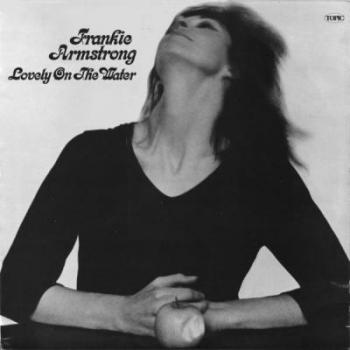
[Child #295A]
Una ballata che contiene echi ad altre sette- od ottocentesche come “Lord Thomas and Fair Eleanor”, “Barbara Allen” e “The Sailor from Dover”
Interpretata innanzitutto da Frankie Armstrong nel suo album “Lovely on the Water” del 1972, poi da Steeleye Span, Martin Carthy, Jon Boden e altri artisti
A proud, vengeful creature, spurned “because she was too brown”. The implication is, she wasn't fine enough, ladies had lilywhite hands, skin as fair as milk; working girls got suntanned and coarsened in the field, unfit for gentlemen. The ballad, containing echoes of Lord Thomas and Fair Eleanor, Barbara Allen, and others, doesn't seem to have been very common it its original form, more or less as Frankie sings it. But in altered shape, in which it is the man, sometimes a sailor, not the girl who is slighted and pitiless, it had wildfire success in England as The Dover Sailor, and... (Continues)
Una ballata che contiene echi ad altre sette- od ottocentesche come “Lord Thomas and Fair Eleanor”, “Barbara Allen” e “The Sailor from Dover”
Interpretata innanzitutto da Frankie Armstrong nel suo album “Lovely on the Water” del 1972, poi da Steeleye Span, Martin Carthy, Jon Boden e altri artisti
A proud, vengeful creature, spurned “because she was too brown”. The implication is, she wasn't fine enough, ladies had lilywhite hands, skin as fair as milk; working girls got suntanned and coarsened in the field, unfit for gentlemen. The ballad, containing echoes of Lord Thomas and Fair Eleanor, Barbara Allen, and others, doesn't seem to have been very common it its original form, more or less as Frankie sings it. But in altered shape, in which it is the man, sometimes a sailor, not the girl who is slighted and pitiless, it had wildfire success in England as The Dover Sailor, and... (Continues)
“I am as brown as brown can be,
(Continues)
(Continues)
Contributed by Bernart Bartleby 2017/11/28 - 16:11
The Maid and the Palmer and the Well Below the Valley
Anonymous
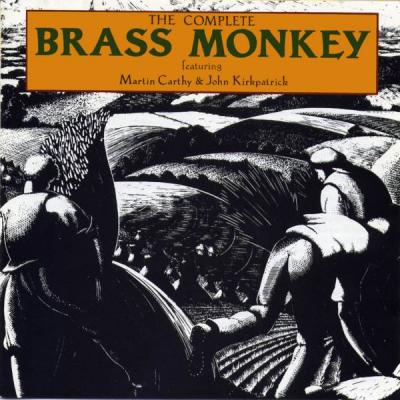
21A. The Maid and the Palmer
La versione eseguita dai Brass Monkey con Martin Carthy e John Kirkpatrick [The Complete Brass Monkey, 1983]
The version performed by Brass Monkey, with Martin Carthy and John Kirkpatrick [The Complete Brass Monkey, 1983]
Ripresa da Terre Celtiche di Cattia Salto. Sono inserite le note originali della curatrice.
Reproduced from Cattia Salto's Terre Celtiche. Original notes by the editor are included. [RV]
La versione eseguita dai Brass Monkey con Martin Carthy e John Kirkpatrick [The Complete Brass Monkey, 1983]
The version performed by Brass Monkey, with Martin Carthy and John Kirkpatrick [The Complete Brass Monkey, 1983]
Ripresa da Terre Celtiche di Cattia Salto. Sono inserite le note originali della curatrice.
Reproduced from Cattia Salto's Terre Celtiche. Original notes by the editor are included. [RV]
THE MAID AND THE PALMER
(Continues)
(Continues)
Contributed by Riccardo Venturi 2017/9/11 - 11:09

Should you go to Scarborough Fair together with Simon & Garfunkel, you should be accompanied by Elfin Knight, an antiwar Canticle, a coalminer, Martin Carthy, Ewan McColl and Peggy Seeger, Bob Dylan, the great American scholar Francis James Child, Oedipus and the Sphynx, Samson, the Veronese Riddle, a Graduate, the Muppets and even the Devil in person... This really millenary song deserves a totally new, composite page, with a totally new historical introduction (only in Italian for the moment): A very, very long story...
Riccardo Venturi 2017/7/2 - 00:55
Poor Murdered Woman
Anonymous
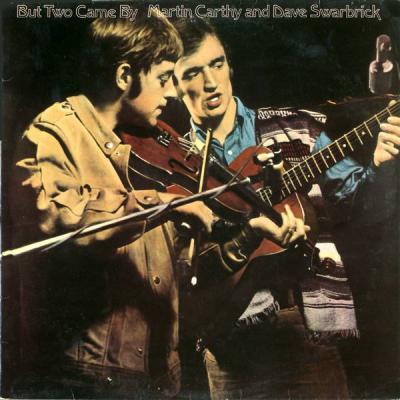
[183?]
Una canzone il cui autore si dice sia stato tal Mr. Fairs, un fabbricante di mattoni di Leatherhead, nel Surrey inglese. Ma l’attribuzione è incerta.
Interpretata da diversi artisti inglesi, tra i quali Martin Carthy con Dave Swarbrick nel loro disco “But Two Came By” del 1968, e Shirley Collins in “No Roses” del 1971, con The Albion Country Band.
Testo trovato su English Folk Music.
Non ho voluto proporre la versione di Martin Carthy, che pure è precedente, ma quella di una donna, Shirley Collins, per il motivo che il 25 novembre è la giornata mondiale contro la violenza sulle donne. Eppure credo che anche oggi saranno numerose le uccise, le ferite, le stuprate, che purtroppo It's a Man's Man's Man's World, un mondo in mano alla violenza dei maschi, potenti e/o impotenti, dove i più deboli (i maschi che rifiutano la violenza, e le donne non complici dei maschi aguzzini, e i bambini,... (Continues)
Una canzone il cui autore si dice sia stato tal Mr. Fairs, un fabbricante di mattoni di Leatherhead, nel Surrey inglese. Ma l’attribuzione è incerta.
Interpretata da diversi artisti inglesi, tra i quali Martin Carthy con Dave Swarbrick nel loro disco “But Two Came By” del 1968, e Shirley Collins in “No Roses” del 1971, con The Albion Country Band.
Testo trovato su English Folk Music.
Non ho voluto proporre la versione di Martin Carthy, che pure è precedente, ma quella di una donna, Shirley Collins, per il motivo che il 25 novembre è la giornata mondiale contro la violenza sulle donne. Eppure credo che anche oggi saranno numerose le uccise, le ferite, le stuprate, che purtroppo It's a Man's Man's Man's World, un mondo in mano alla violenza dei maschi, potenti e/o impotenti, dove i più deboli (i maschi che rifiutano la violenza, e le donne non complici dei maschi aguzzini, e i bambini,... (Continues)
It was Hankey the Squire as I've heard men say
(Continues)
(Continues)
Contributed by Bernart Bartleby 2016/11/25 - 14:31
Here's Adieu to All Judges and Juries
Anonymous
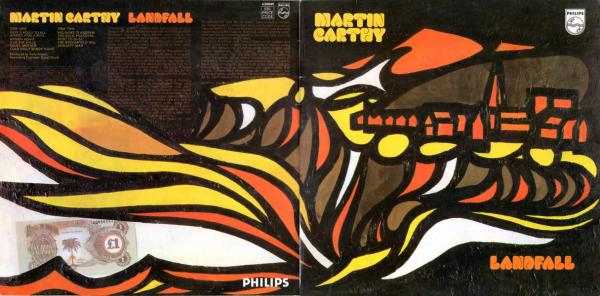
[19° sec.]
Una ballata ottocentesca ripresa innanzitutto da Martin Carthy nel suo album “Landfall” del 1971.
Testo trovato su English Folk Music
Se nel Regno britannico di 6-700 il destino di un ribelle, di un ladro, o di un “poacher”, un bracconiere, poteva essere la morte per impiccagione (vedi Geordie, or My Geordie Will Be Hanged In A Golden Chain), nei primi decenni dell’800 la giustizia preferiva non sprecare un paio di braccia e spediva i condannati nelle colonie penali e nelle fattorie-prigioni in Australia.
Un modo piuttosto spiccio per colonizzare nuove terre ed ampliare i confini dell’Impero a costo zero o, meglio, facendo pagare il prezzo a poveracci, criminali comuni e prigionieri politici…
Una ballata ottocentesca ripresa innanzitutto da Martin Carthy nel suo album “Landfall” del 1971.
Testo trovato su English Folk Music
Se nel Regno britannico di 6-700 il destino di un ribelle, di un ladro, o di un “poacher”, un bracconiere, poteva essere la morte per impiccagione (vedi Geordie, or My Geordie Will Be Hanged In A Golden Chain), nei primi decenni dell’800 la giustizia preferiva non sprecare un paio di braccia e spediva i condannati nelle colonie penali e nelle fattorie-prigioni in Australia.
Un modo piuttosto spiccio per colonizzare nuove terre ed ampliare i confini dell’Impero a costo zero o, meglio, facendo pagare il prezzo a poveracci, criminali comuni e prigionieri politici…
Here's adieu to all judges and juries!
(Continues)
(Continues)
Contributed by Bernart Bartleby 2016/11/16 - 13:31
Song Itineraries:
From World Jails, Traditional English, Scottish and Irish antiwar ballads
Und was bekam des Soldaten Weib?
La versione inglese di Martin Carthy dal suo album del 1967 intitolato "Byker Hill”, con Dave Swarbrick al violino.
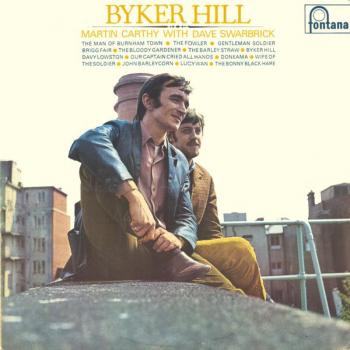
Testo trovato su English Folk Music
THE WIFE OF THE SOLDIER
(Continues)
(Continues)
Contributed by Bernart Bartleby 2016/11/16 - 11:36
The Lament Of The Border Widow
Anonymous
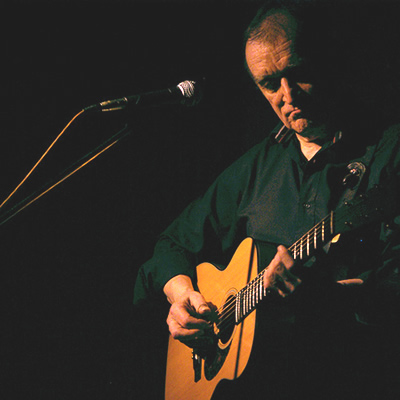
Nell’introduzione a questa ballata Riccardo faceva riferimento ad un testo ben più lungo cui “The Lament of the Border Widow” si rifà. Si tratta per l’appunto di “Famous Flower of Serving Men”, il cui autore fu tal Laurence Price, balladeer londinese attivo tra il 1625 ed il 1680, che la pubblicò nel 1656.
Molti gli artisti inglesi che l’hanno interpretata, primo fra tutti Martin Carthy, a partire dal suo album del 1972 intitolato "Shearwater”.
Di seguito riporto note introduttive e testo della ballata nella versione di Carthy, come tratti da English Folk Music
“By common consent, the finest piece on the album is Famous Flower of Serving Men. The plot (brace yourself!): a mother sends violent thugs to her daughter's house to kill her husband and baby. The young woman digs their graves, buries them, dries her tears, cuts off her hair and dresses herself as a man. She goes to work at the... (Continues)
Molti gli artisti inglesi che l’hanno interpretata, primo fra tutti Martin Carthy, a partire dal suo album del 1972 intitolato "Shearwater”.
Di seguito riporto note introduttive e testo della ballata nella versione di Carthy, come tratti da English Folk Music
“By common consent, the finest piece on the album is Famous Flower of Serving Men. The plot (brace yourself!): a mother sends violent thugs to her daughter's house to kill her husband and baby. The young woman digs their graves, buries them, dries her tears, cuts off her hair and dresses herself as a man. She goes to work at the... (Continues)
FAMOUS FLOWER OF SERVING MEN
(Continues)
(Continues)
Contributed by Bernart Bartleby 2016/11/16 - 08:33
Monkey Hair
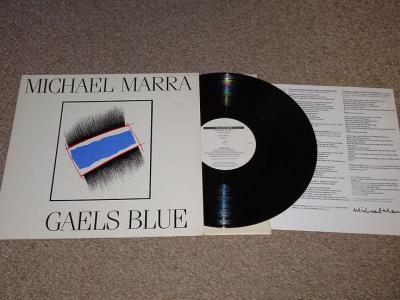
(1985)
Interpretata anche da Martin Carthy nell'album The Moral of the Elephant (2014)
Monkey hair è una canzone più recente dello scomparso cantautore scozzese (apparsa nel 1985 in Gaels Blue) che parla della moglie di un prete a lui conterraneo stanca di mettere al mondo figli spediti dal marito a morire in guerra
Interpretata anche da Martin Carthy nell'album The Moral of the Elephant (2014)
Monkey hair è una canzone più recente dello scomparso cantautore scozzese (apparsa nel 1985 in Gaels Blue) che parla della moglie di un prete a lui conterraneo stanca di mettere al mondo figli spediti dal marito a morire in guerra
Monkey hair has turned to fair
(Continues)
(Continues)
Contributed by Flavio Poltronieri 2015/8/15 - 19:13
The Bonny Moorhen
Anonymous
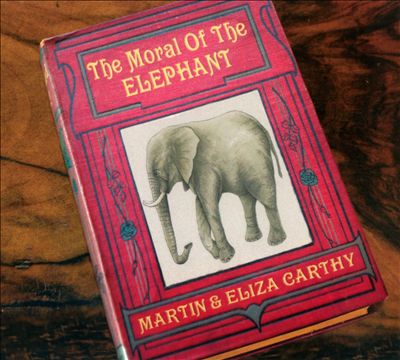
[Traditional - ca. 1818]
[Tradizionale - ca. 1818]
Performed by Martin Carthy on his and Eliza Carthy's duo album The Moral of the Elephant [2014]
Interpretata da Martin Carthy nell'album in duo con Eliza Carthy The Moral of the Elephant [2014]
"Ho ricevuto l'ultimo cd di Martin Carthy (The Moral of the Elephant, 2014) e sono contenuti un paio di vecchi pezzi interessanti che non ho trovato nel sito." [Flavio Poltronieri]
"Martin Carthy sang Bonny Moorhen in 2014 on his and Eliza Carthy's duo album, The Moral of the Elephant. He commented in their album's sleeve notes:
Mike Bettison, having for many years been a mainstay of Flowers and Frolics and of The Fabulous Salami Brothers, is these days a Community Arts organiser in Hawes and he phoned a while back having run to earth the grandson of the man who sang Scarborough Fair to Ewan MacColl in the late 1940s. He is Floyd Anderson and... (Continues)
[Tradizionale - ca. 1818]
Performed by Martin Carthy on his and Eliza Carthy's duo album The Moral of the Elephant [2014]
Interpretata da Martin Carthy nell'album in duo con Eliza Carthy The Moral of the Elephant [2014]
"Ho ricevuto l'ultimo cd di Martin Carthy (The Moral of the Elephant, 2014) e sono contenuti un paio di vecchi pezzi interessanti che non ho trovato nel sito." [Flavio Poltronieri]
"Martin Carthy sang Bonny Moorhen in 2014 on his and Eliza Carthy's duo album, The Moral of the Elephant. He commented in their album's sleeve notes:
Mike Bettison, having for many years been a mainstay of Flowers and Frolics and of The Fabulous Salami Brothers, is these days a Community Arts organiser in Hawes and he phoned a while back having run to earth the grandson of the man who sang Scarborough Fair to Ewan MacColl in the late 1940s. He is Floyd Anderson and... (Continues)
You brave lads of Weardale, I pray lend an ear
(Continues)
(Continues)
Contributed by Flavio Poltronieri + CCG/AWS Staff 2015/8/15 - 19:06
Home Fit for Heroes
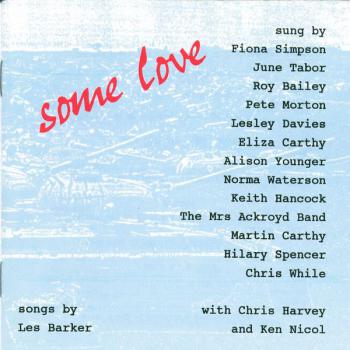
[1992]
Parole di Les Barker (1947-), poeta di Manchester.
Musica di Martin Carthy.
Interpretata da Norma Waterson nel disco di Les Barker intitolato “Some Love”, con June Tabor, Roy Bailey, Eliza e Martin Carthy, Chris Harvey, Ken Nicol e molti altri
Parole di Les Barker (1947-), poeta di Manchester.
Musica di Martin Carthy.
Interpretata da Norma Waterson nel disco di Les Barker intitolato “Some Love”, con June Tabor, Roy Bailey, Eliza e Martin Carthy, Chris Harvey, Ken Nicol e molti altri
They died in their millions,
(Continues)
(Continues)
Contributed by Bernart Bartleby 2015/4/30 - 08:49
Song Itineraries:
Heroes, World War I (1914-1918)
Norwich Gaol

[1977]
Parole e musica di Peter Bellamy
In “The Transports. A Ballad Opera.”
Con la crema dei folksinger inglesi dell’epoca, tra cui The Watersons, Martin Carthy, Nic Jones, A.L. Lloyd, June Tabor, Martin Winsor, Cyril Tawney e Dave Swarbrick.
Testo trovato su Mainly Norfolk: English Folk and Other Good Music
Un’opera che racconta una storia vera, quella di Henry Cabell e Susannah Holmes, “two poor fellows” che nel 1783 furono condannati alla deportazione per aver commesso dei furti a causa della miseria. I due erano amanti e dalla loro relazione era nato un bimbo ma ai due non fu in un primo momento concesso di sposarsi e la famigliola corse il serio rischio di essere smembrata. Uno dei loro carcerieri s’impietosì e intercesse per loro presso il ministro dell’interno.
Così Henry e Susannah poterono unirsi in matrimonio e nel 1787, dando corso alla sentenza, furono imbarcati con il... (Continues)
Parole e musica di Peter Bellamy
In “The Transports. A Ballad Opera.”
Con la crema dei folksinger inglesi dell’epoca, tra cui The Watersons, Martin Carthy, Nic Jones, A.L. Lloyd, June Tabor, Martin Winsor, Cyril Tawney e Dave Swarbrick.
Testo trovato su Mainly Norfolk: English Folk and Other Good Music
Un’opera che racconta una storia vera, quella di Henry Cabell e Susannah Holmes, “two poor fellows” che nel 1783 furono condannati alla deportazione per aver commesso dei furti a causa della miseria. I due erano amanti e dalla loro relazione era nato un bimbo ma ai due non fu in un primo momento concesso di sposarsi e la famigliola corse il serio rischio di essere smembrata. Uno dei loro carcerieri s’impietosì e intercesse per loro presso il ministro dell’interno.
Così Henry e Susannah poterono unirsi in matrimonio e nel 1787, dando corso alla sentenza, furono imbarcati con il... (Continues)
The food is foul, the air is bad, the company not choice;
(Continues)
(Continues)
Contributed by Bernart Bartleby 2015/4/29 - 14:02
Us Poor Fellows

[1977]
Parole e musica di Peter Bellamy
In “The Transports. A Ballad Opera.”
Con la crema dei folksinger inglesi dell’epoca, tra cui The Watersons, Martin Carthy, Nic Jones, A. L. Lloyd, June Tabor, Martin Winsor, Cyril Tawney e Dave Swarbrick.
Un’opera che racconta una storia vera, quella di Henry Cabell e Susannah Holmes, “two poor fellows” che nel 1783 furono condannati alla deportazione per aver commesso dei furti a causa della miseria. I due erano amanti e dalla loro relazione era nato un bimbo ma ai due non fu in un primo momento concesso di sposarsi e la famigliola corse il serio rischio di essere smembrata. Uno dei loro carcerieri s’impietosì e intercesse per loro presso il ministro dell’interno.
Così Henry e Susannah poterono unirsi in matrimonio e nel 1787, dando corso alla sentenza, furono imbarcati con il figlioletto su uno degli 11 vascelli del convoglio battezzato “First... (Continues)
Parole e musica di Peter Bellamy
In “The Transports. A Ballad Opera.”
Con la crema dei folksinger inglesi dell’epoca, tra cui The Watersons, Martin Carthy, Nic Jones, A. L. Lloyd, June Tabor, Martin Winsor, Cyril Tawney e Dave Swarbrick.
Un’opera che racconta una storia vera, quella di Henry Cabell e Susannah Holmes, “two poor fellows” che nel 1783 furono condannati alla deportazione per aver commesso dei furti a causa della miseria. I due erano amanti e dalla loro relazione era nato un bimbo ma ai due non fu in un primo momento concesso di sposarsi e la famigliola corse il serio rischio di essere smembrata. Uno dei loro carcerieri s’impietosì e intercesse per loro presso il ministro dell’interno.
Così Henry e Susannah poterono unirsi in matrimonio e nel 1787, dando corso alla sentenza, furono imbarcati con il figlioletto su uno degli 11 vascelli del convoglio battezzato “First... (Continues)
The times they are hard and the wages are poor
(Continues)
(Continues)
Contributed by Bernart Bartleby 2015/4/29 - 13:42
Friday Morning
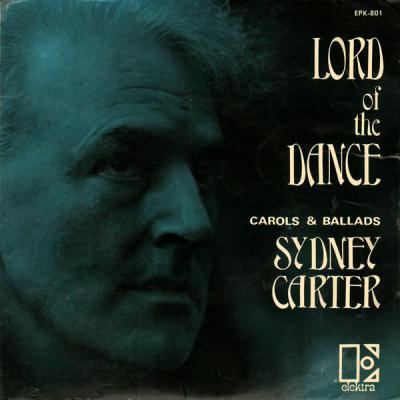
[1966]
Parole e musica di Sydney Carter (1915-2004), poeta, cantautore e musicista folk inglese.
Nel suo disco intitolato “Lord of the Dance - Carols & Ballads”, con Martin Carthy, Johnny Scott Trio e Mike Sammes Singers.
Un condannato a morte riflette sull’origine dell’ingiustizia rivolgendosi ad un altro prigioniero, un falegname, destinato come lui ad essere crocifisso...
Parole e musica di Sydney Carter (1915-2004), poeta, cantautore e musicista folk inglese.
Nel suo disco intitolato “Lord of the Dance - Carols & Ballads”, con Martin Carthy, Johnny Scott Trio e Mike Sammes Singers.
Un condannato a morte riflette sull’origine dell’ingiustizia rivolgendosi ad un altro prigioniero, un falegname, destinato come lui ad essere crocifisso...
It was on a Friday morning
(Continues)
(Continues)
Contributed by Bernart Bartleby 2014/5/17 - 14:54
Song Itineraries:
Death penalty: murder by the power
The Devil Wore a Crucifix

[1966]
Parole e musica di Sidney Carter (1915-2004), poeta, cantautore e musicista folk inglese.
Nel suo disco intitolato “Lord of the Dance - Carols & Ballads”, con Martin Carthy, Johnny Scott Trio e Mike Sammes Singers.
Parole e musica di Sidney Carter (1915-2004), poeta, cantautore e musicista folk inglese.
Nel suo disco intitolato “Lord of the Dance - Carols & Ballads”, con Martin Carthy, Johnny Scott Trio e Mike Sammes Singers.
The devil wore a crucifix.
(Continues)
(Continues)
Contributed by Bernart Bartleby 2014/5/17 - 14:26
Song Itineraries:
Conflicts in Ireland
History Lesson
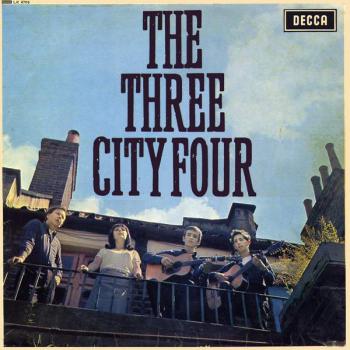
[1965]
Parole e musica di Leon Rosselson
La prima incisione del brano si trova in “Three City Four” album eponimo del gruppo composto da Martin Carthy, Leon Rosselson, Ralph Trainer e Marian McKenzie.
Leon Rosselson lo reincise da solo nell’album intitolato “A Laugh, a Song, and a Hand-Grenade” del 1968.
Testo trovato su Mudcat Café
“According to a note in my first (1966) songbook, this song grew out of memories of history lessons at my school on the edge of Parliament Hill Fields. The tedious recital of facts and dates and great men's deeds is just the sort of history our present rulers would like to reinstate.”
“Secondo quanto mi appuntai nel mio primo libretto di canzoni, risalente al 1966, questa canzone nacque dal ricordo delle lezioni di Storia che si tenevano nella mia scuola nei pressi di Parliament Hill Fields a Londra. La noiosa recitazione mnemonica di date ed imprese di personaggi celebri è proprio il genere di insegnamento della Storia che i nostri governanti vorrebbero ripristinato oggi”
Leon Rosselson
Parole e musica di Leon Rosselson
La prima incisione del brano si trova in “Three City Four” album eponimo del gruppo composto da Martin Carthy, Leon Rosselson, Ralph Trainer e Marian McKenzie.
Leon Rosselson lo reincise da solo nell’album intitolato “A Laugh, a Song, and a Hand-Grenade” del 1968.
Testo trovato su Mudcat Café
“According to a note in my first (1966) songbook, this song grew out of memories of history lessons at my school on the edge of Parliament Hill Fields. The tedious recital of facts and dates and great men's deeds is just the sort of history our present rulers would like to reinstate.”
“Secondo quanto mi appuntai nel mio primo libretto di canzoni, risalente al 1966, questa canzone nacque dal ricordo delle lezioni di Storia che si tenevano nella mia scuola nei pressi di Parliament Hill Fields a Londra. La noiosa recitazione mnemonica di date ed imprese di personaggi celebri è proprio il genere di insegnamento della Storia che i nostri governanti vorrebbero ripristinato oggi”
Leon Rosselson
History lesson it's time to remember
(Continues)
(Continues)
Contributed by Bernart 2013/8/27 - 23:15
Such a War Has Never Been
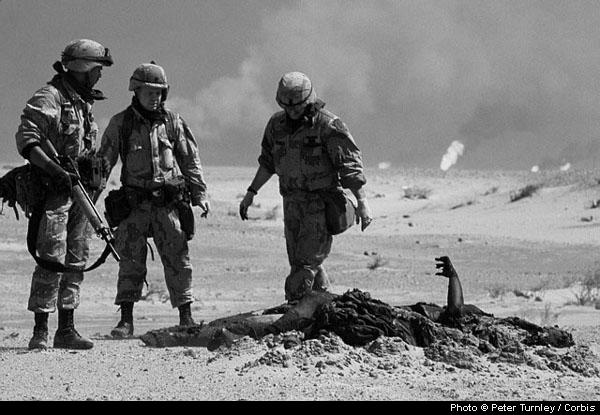
[1992]
Parole di Les Barker (1947-), poeta inglese noto per il suo piglio umoristico e parodistico
Musica di Martin Carthy
Nell’album di Carthy intitolato “Skin + Bone”, con Dave Swarbrick dei Fairport Convention
“Come se una guerra del genere non fosse mai avvenuta per davvero”…
Una canzone sulla prima guerra del Golfo, la prima guerra mediatica della Storia, combattuta (?!?) con un occhio – quando non entrambi – all’audience e alle esigenze del “prime time” televisivo, quella in cui la casta militare e la sua grancassa giornalistica sdoganarono aberranti espressioni come “bombe intelligenti” e “guerra chirurgica”…
Parole di Les Barker (1947-), poeta inglese noto per il suo piglio umoristico e parodistico
Musica di Martin Carthy
Nell’album di Carthy intitolato “Skin + Bone”, con Dave Swarbrick dei Fairport Convention
“Come se una guerra del genere non fosse mai avvenuta per davvero”…
Una canzone sulla prima guerra del Golfo, la prima guerra mediatica della Storia, combattuta (?!?) con un occhio – quando non entrambi – all’audience e alle esigenze del “prime time” televisivo, quella in cui la casta militare e la sua grancassa giornalistica sdoganarono aberranti espressioni come “bombe intelligenti” e “guerra chirurgica”…
I fight the force of evil
(Continues)
(Continues)
Contributed by Bernart 2013/8/14 - 15:39
The Flowers O' the Forest
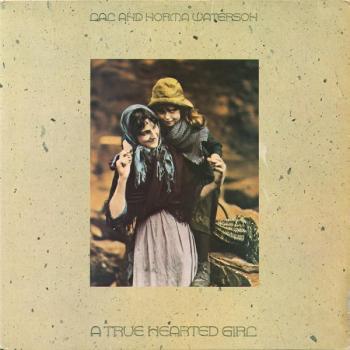
[XVI secolo / 1918]
Versi di Frederic William Moorman (1872-1918), dalla raccolta “Songs of the Ridings”
Musica di Lal & Norma Waterson.
Nell’album intitolato “A True Hearted Girl” del 1977.
Interpretata anche da e insieme a Martin Carthy.
Interpretata anche da June Tabor insieme alla The Lone Tree Orchestra nell’album “We Died in Hell - They Called it Passchendaele” del 1993.
Testo trovato su English Folk Music
Frederic William Moorman – predecessore di J. R. R. Tolkien sulla cattedra di lingua e letteratura inglese dell’Università di Leeds – pubblicò diverse raccolte di storie e poesie tradizionali dello Yorkshire, molte delle quali nel dialetto della regione.
“I fiori della foresta” sono qui i giovani inglesi che hanno trovato la morte nelle trincee delle Fiandre durante la Grande Guerra ma i versi (come conferma Norma Waterson nelle note al disco) derivano... (Continues)
Versi di Frederic William Moorman (1872-1918), dalla raccolta “Songs of the Ridings”
Musica di Lal & Norma Waterson.
Nell’album intitolato “A True Hearted Girl” del 1977.
Interpretata anche da e insieme a Martin Carthy.
Interpretata anche da June Tabor insieme alla The Lone Tree Orchestra nell’album “We Died in Hell - They Called it Passchendaele” del 1993.
Testo trovato su English Folk Music
Frederic William Moorman – predecessore di J. R. R. Tolkien sulla cattedra di lingua e letteratura inglese dell’Università di Leeds – pubblicò diverse raccolte di storie e poesie tradizionali dello Yorkshire, molte delle quali nel dialetto della regione.
“I fiori della foresta” sono qui i giovani inglesi che hanno trovato la morte nelle trincee delle Fiandre durante la Grande Guerra ma i versi (come conferma Norma Waterson nelle note al disco) derivano... (Continues)
Day time is weary, and I caw' dusk dreary,
(Continues)
(Continues)
Contributed by Dead End 2012/12/20 - 15:31
Song Itineraries:
World War I (1914-1918)
Coal Not Dole
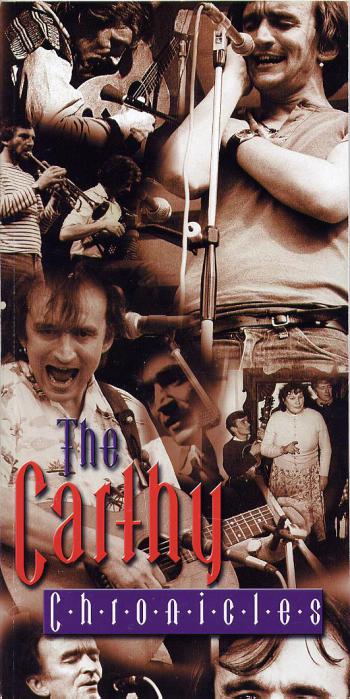
[1984-85]
Parole di Kay Sutcliffe
Musica di Paul Abrahams
Interpretata da The Watersons, ossia Norma Waterson insieme ai suoi familiari (Lal, Mike e Rachel) e Martin Carthy, in un concerto del 1987.
In seguito inclusa in un’antologia di Carthy intitolata “The Carthy Chronicles” (2001)
I Watersons l’hanno poi a loro volta inclusa in un’antologia in 4 CD intitolata “Mighty River of Song” che hanno fatto uscire nell’aprile del 2013… E con prodigioso tempismo: proprio in occasione della dipartita dal mondo di Margaret Thatcher!
“Carbone (Lavoro) non (sussidio di) disoccupazione” fu scritta da Kay Sutcliffe, moglie di un minatore del Kent, all’epoca del grande sciopero dei minatori inglesi che li vide duramente contrapposti al governo dell’“Iron Lady” Margaret Thatcher.
“Coal Not Dole” era uno slogan che compariva scritto un po’ ovunque sui muri durante quel lungo e durissimo sciopero,... (Continues)
Parole di Kay Sutcliffe
Musica di Paul Abrahams
Interpretata da The Watersons, ossia Norma Waterson insieme ai suoi familiari (Lal, Mike e Rachel) e Martin Carthy, in un concerto del 1987.
In seguito inclusa in un’antologia di Carthy intitolata “The Carthy Chronicles” (2001)
I Watersons l’hanno poi a loro volta inclusa in un’antologia in 4 CD intitolata “Mighty River of Song” che hanno fatto uscire nell’aprile del 2013… E con prodigioso tempismo: proprio in occasione della dipartita dal mondo di Margaret Thatcher!
“Carbone (Lavoro) non (sussidio di) disoccupazione” fu scritta da Kay Sutcliffe, moglie di un minatore del Kent, all’epoca del grande sciopero dei minatori inglesi che li vide duramente contrapposti al governo dell’“Iron Lady” Margaret Thatcher.
“Coal Not Dole” era uno slogan che compariva scritto un po’ ovunque sui muri durante quel lungo e durissimo sciopero,... (Continues)
They stand so proud, the wheels so still
(Continues)
(Continues)
Contributed by DoNQuijote82 & Bernart Bartleby 2012/3/20 - 10:10
Song Itineraries:
The War of Labour: Emigration, Immigration, Exploitation, Slavery
A Stitch In Thime
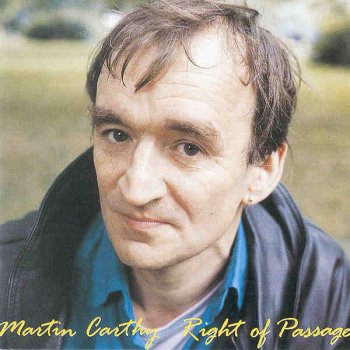
[1986]
Parole di Mike Waterson (1941-2011), scrittore e cantautore inglese.
Incisa da Martin Carthy nel suo album “Right of Passage” del 1988
La melodia è quella del tradizionale sea shanty On Board Of A Man-of-War
Testo trovato su MySongBook.de
Un’altra canzone contro la violenza sulle donne.
Cosa può fare una donna, una casalinga (come tante) sfruttata (come tante) e brutalizzata (come tante) da un compagno violento (come tanti) e ubriacone (come tanti)? Può usare gli “attrezzi del mestiere”, così come nei primi anni 60 fece la signora di Hull, Yorkshire, madre di quattro figli, protagonista di questa canzone…
Parole di Mike Waterson (1941-2011), scrittore e cantautore inglese.
Incisa da Martin Carthy nel suo album “Right of Passage” del 1988
La melodia è quella del tradizionale sea shanty On Board Of A Man-of-War
Testo trovato su MySongBook.de
Un’altra canzone contro la violenza sulle donne.
“A true story put into song by Mike Waterson about four years ago. It happened about 1962 in the Hessle Road area of Hull and the tune is that of a brutal Royal Navy song called On Board Of A Man-of-war.” (Martin Carthy)
Cosa può fare una donna, una casalinga (come tante) sfruttata (come tante) e brutalizzata (come tante) da un compagno violento (come tanti) e ubriacone (come tanti)? Può usare gli “attrezzi del mestiere”, così come nei primi anni 60 fece la signora di Hull, Yorkshire, madre di quattro figli, protagonista di questa canzone…
Oh there was a woman and she lived on her own
(Continues)
(Continues)
Contributed by The Lone Ranger 2010/5/13 - 11:37
Song Itineraries:
Violence on Women: just like and worse than war
Geordie, or My Geordie Will Be Hanged In A Golden Chain
Anonymous

A version performed by Martin Carthy in English Folk Music
La version interprétée par Martin Carthy dans English Folk Music
Versio, jonka lauloi Martin Carthy albumissa English Folk Music
Martin Carthy sang Geordie in 1974 in a John Peel BBC Radio session. This recording was included in “The Carthy Chronicles”. He then recorded Geordie for his 1976 album “Crown of Horn”. Martin Carthy commented in the “Crown of Horn” sleeve notes:
“It is often said that the English version of Geordie is a later copy of the Scottish song about George Gordon, Earl of Huntly, who was imprisoned and threatened with death in 1554 for ‘failing to execute a commission against a Highland robber.’ The motive was obviously political and in the end a fine was exacted and he was freed. A later song called The Life and Death of George of Oxford, while being superficially a copy of the Scots one, at least in part, also... (Continues)
La version interprétée par Martin Carthy dans English Folk Music
Versio, jonka lauloi Martin Carthy albumissa English Folk Music
Martin Carthy sang Geordie in 1974 in a John Peel BBC Radio session. This recording was included in “The Carthy Chronicles”. He then recorded Geordie for his 1976 album “Crown of Horn”. Martin Carthy commented in the “Crown of Horn” sleeve notes:
“It is often said that the English version of Geordie is a later copy of the Scottish song about George Gordon, Earl of Huntly, who was imprisoned and threatened with death in 1554 for ‘failing to execute a commission against a Highland robber.’ The motive was obviously political and in the end a fine was exacted and he was freed. A later song called The Life and Death of George of Oxford, while being superficially a copy of the Scots one, at least in part, also... (Continues)
GEORDIE
(Continues)
(Continues)
Contributed by Alessandro 2010/4/29 - 11:27
Hard Times of Old England
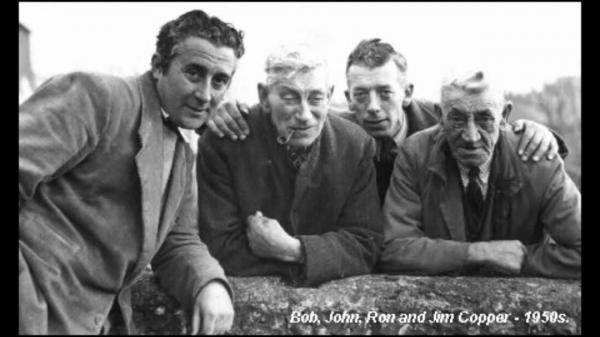
[1963]
Album "Traditional Songs From Rottingdean"
Una canzone risalente al XVIII secolo e ripresa dalla Copper Family, un gruppo di cantori nato alla metà dell'800 su iniziativa dei fratelli James e Thomas Copper che, rinnovandosi di generazione in generazione, tramanda intatte le canzoni più antiche della tradizione inglese.
Tempi duri nella vecchia Inghilterra: chi è rimasto a casa ha perso il lavoro, chi torna dalla guerra non ne trova uno. Per tornare a casa a fare la fame era meglio restare a farsi ammazzare per il Re!
Il brano è stato ripreso anche da Martin Carthy e dagli Steeleye Span.
Album "Traditional Songs From Rottingdean"
Una canzone risalente al XVIII secolo e ripresa dalla Copper Family, un gruppo di cantori nato alla metà dell'800 su iniziativa dei fratelli James e Thomas Copper che, rinnovandosi di generazione in generazione, tramanda intatte le canzoni più antiche della tradizione inglese.
Tempi duri nella vecchia Inghilterra: chi è rimasto a casa ha perso il lavoro, chi torna dalla guerra non ne trova uno. Per tornare a casa a fare la fame era meglio restare a farsi ammazzare per il Re!
Il brano è stato ripreso anche da Martin Carthy e dagli Steeleye Span.
Come all brother tradesmen that travel alone,
(Continues)
(Continues)
Contributed by Alessandro 2009/9/19 - 15:38
Company Policy

[1988]
Lyrics and music by Martin Carthy
Album: "Right Of Passage"
interpretata anche da Maggie Holland
Lyrics and music by Martin Carthy
Album: "Right Of Passage"
interpretata anche da Maggie Holland
The wounds sustained in the Falkland War were mainly burns because men were left off shore in boats and landing crafts, waiting for the invasion. They were sitting targets for such Exocet missiles as the Argentinas could lay their hands on. The boats were of super-lightweight construction so they could carry all the electronic hardware that they needed.
Martin Carthy
Martin Carthy
I saw her by the showroom window,
(Continues)
(Continues)
Contributed by daniela -k.d.- 2009/4/20 - 15:50
Song Itineraries:
Falklands (Malvinas) War
Our Captain Cried All Hands
Anonymous
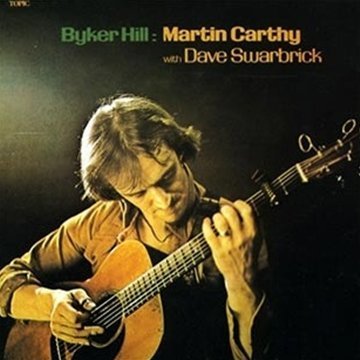
Questa è la versione cantata da Martin Carthy nell'album Byker Hill (con Dave Swarbrick, 1967)
Sung by Martin Carthy on his and Dave Swarbrick's 1967 album Byker Hill, this track was included in the 4LP folk anthology Electric Muse: The Story of Folk into Rock and its 3CD successor, New Electric Muse: The Story of Folk into Rock, and in 2003 on the Dave Swarbrick anthology Swarb!.
Martin Carthy said in the Byker Hill sleeve notes:
The tune of Our Captain Cried All Hands was noted down by Vaughan Williams and slightly adapted to John Bunyan's famous hymn He who would Valiant be. James Reeves, in his notes on the song in the Everlasting Circle, suggests that the song may at one time have been converted for religious use (in much the same way that the Salvation Army converted Oh, No John to Oh, Yes Lord) which would possibly explain the rather confusing last verse which suggests a voyage... (Continues)
Sung by Martin Carthy on his and Dave Swarbrick's 1967 album Byker Hill, this track was included in the 4LP folk anthology Electric Muse: The Story of Folk into Rock and its 3CD successor, New Electric Muse: The Story of Folk into Rock, and in 2003 on the Dave Swarbrick anthology Swarb!.
Martin Carthy said in the Byker Hill sleeve notes:
The tune of Our Captain Cried All Hands was noted down by Vaughan Williams and slightly adapted to John Bunyan's famous hymn He who would Valiant be. James Reeves, in his notes on the song in the Everlasting Circle, suggests that the song may at one time have been converted for religious use (in much the same way that the Salvation Army converted Oh, No John to Oh, Yes Lord) which would possibly explain the rather confusing last verse which suggests a voyage... (Continues)
Our captain cried, All hands and away tomorrow,
(Continues)
(Continues)
2005/8/29 - 15:14
×
![]()

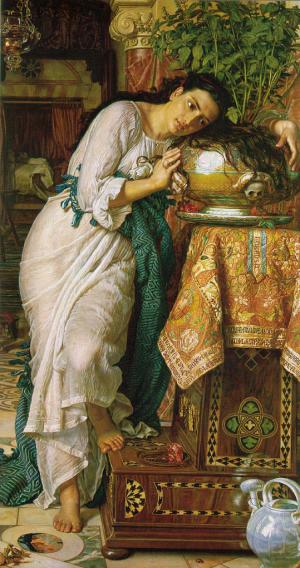
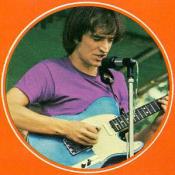

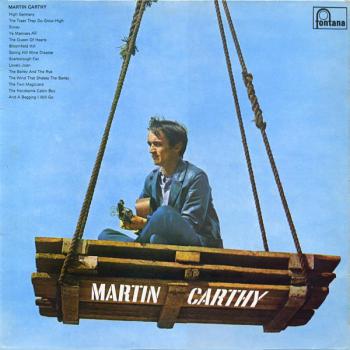
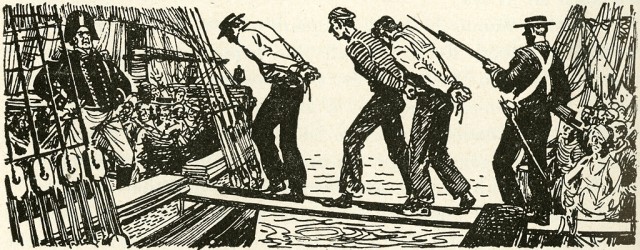
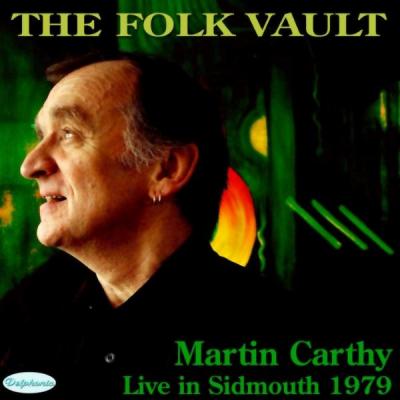
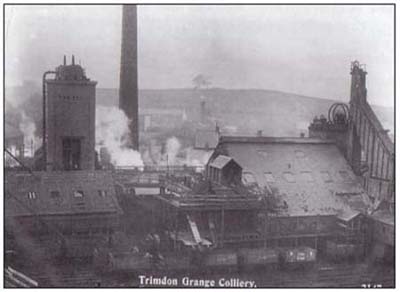
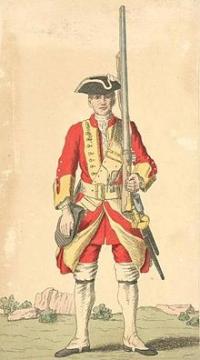
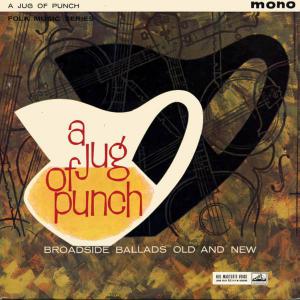
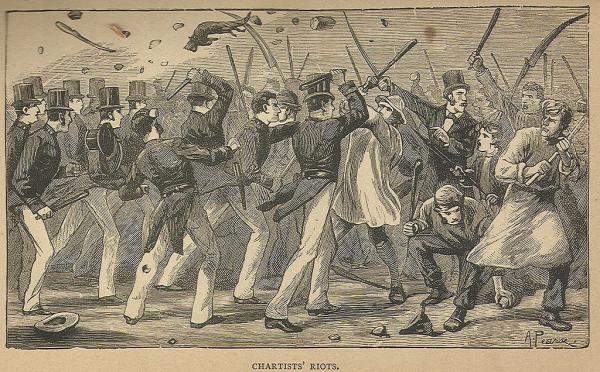
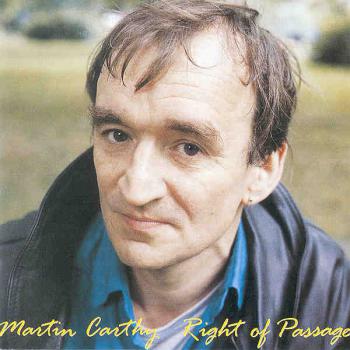
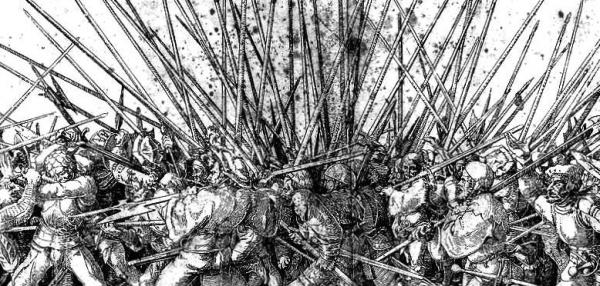
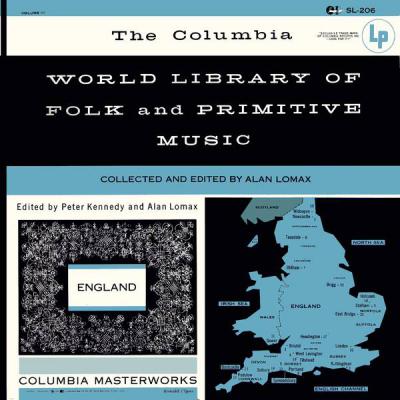
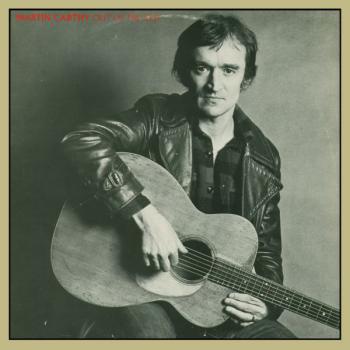
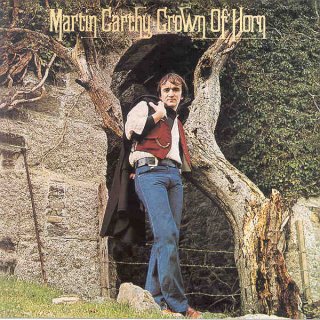
Nota anche con i titoli “The Bramble Briar” e “The Murdered Servantman”.
Tutti i testi (e informazioni più dettagliate) sono reperibili su Mainly Norfolk: English Folk and Other Good Music
Interpretata da Martin Carthy (in “Second Album”) e da Ewan MacColl (in “The Manchester Angel”, con il titolo “The Bramble Briar”) nel 1966. In seguito anche dai Pentangle (nel loro disco d’esordio) e da Maddy Prior (in “Folk Songs of Old England Vol. 1”) nel 1968, e poi da Sandy Denny in alcune esibizioni del 1972 raccolte innanzitutto nell’antologia “Who Knows Where the Time Goes?” pubblicata nel 1986.
Comunque è impossibile citare tutti gli artisti che hanno interpretato “Bruton Town”…
La fonte originaria della canzone parrebbe addirittura essere il “Decamerone” del Boccaccio e,... (Continues)